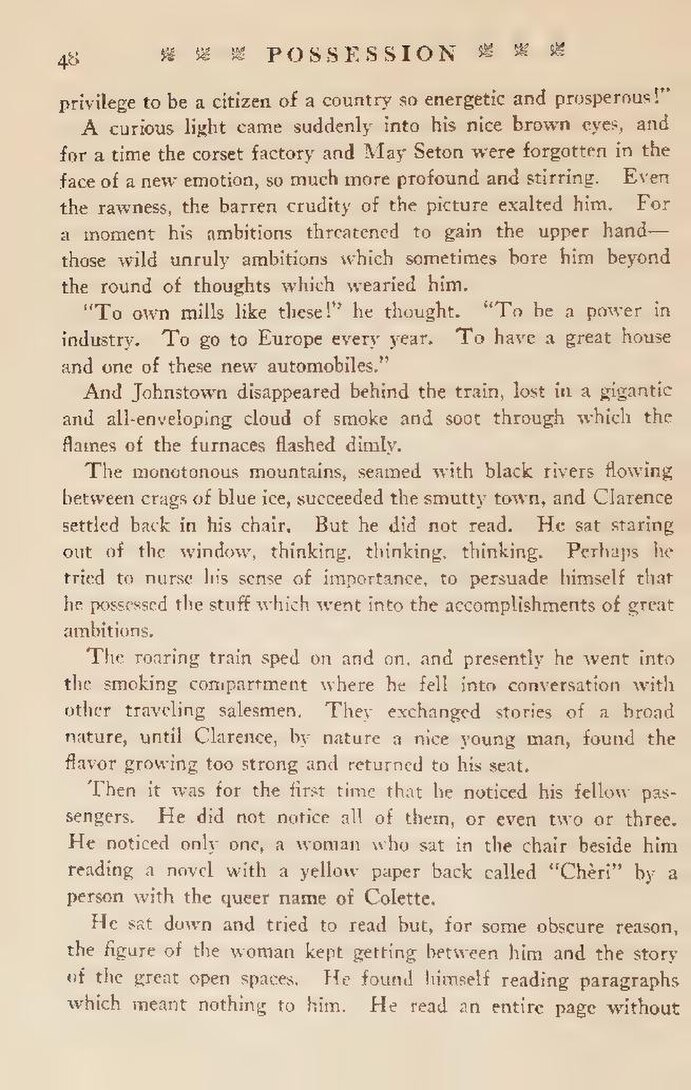privilege to be a citizen of a country so energetic and prosperous!"
A curious light came suddenly into his nice brown eyes, and for a time the corset factory and May Seton were forgotten in the face of a new emotion, so much more profound and stirring. Even the rawness, the barren crudity of the picture exalted him. For a moment his ambitions threatened to gain the upper hand—those wild unruly ambitions which sometimes bore him beyond the round of thoughts which wearied him.
"To own mills like these!" he thought. "To be a power in industry. To go to Europe every year. To have a great house and one of these new automobiles."
And Johnstown disappeared behind the train, lost in a gigantic and all-enveloping cloud of smoke and soot through which the flames of the furnaces flashed dimly.
The monotonous mountains, seamed with black rivers flowing between crags of blue ice, succeeded the smutty town, and Clarence settled back in his chair. But he did not read. He sat staring out of the window, thinking, thinking, thinking. Perhaps he tried to nurse his sense of importance, to persuade himself that he possessed the stuff which went into the accomplishments of great ambitions.
The roaring train sped on and on, and presently he went into the smoking compartment where he fell into conversation with other traveling salesmen. They exchanged stories of a broad nature, until Clarence, by nature a nice young man, found the flavor growing too strong and returned to his seat.
Then it was for the first time that he noticed his fellow passengers. He did not notice all of them, or even two or three. He noticed only one, a woman who sat in the chair beside him reading a novel with a yellow paper back called "Chèri" by a person with the queer name of Colette.
He sat down and tried to read but, for some obscure reason, the figure of the woman kept getting between him and the story of the great open spaces. He found himself reading paragraphs which meant nothing to him. He read an entire page without
